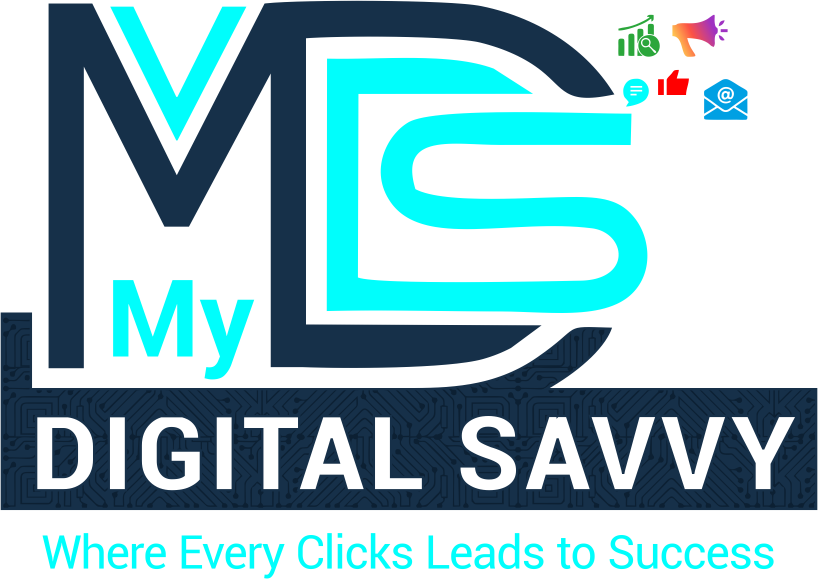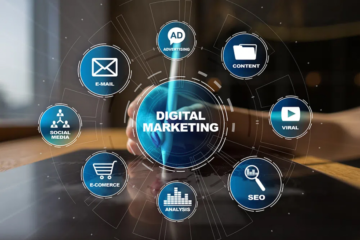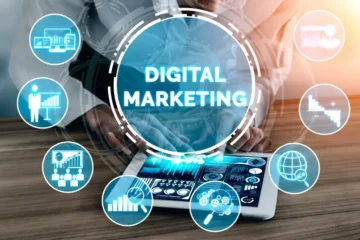In today’s fast-paced digital world, the role of digital marketing in boosting business success cannot be overstated. From increasing brand visibility to engaging customers on various platforms, digital marketing has become a cornerstone of modern business strategies.
Let’s delve into the aspects of how digital can propel your business new heights .
The Significance of having Best Digital Marketing in the 21st Century
Digital marketing encompasses a wide array of online strategies and tools that businesses can leverage to effectively reach their target audience. In an era where consumers spend a significant amount of their time online, having a robust best digital presence is imperative for staying competitive and relevant in the market.
By embracing digital marketing techniques such as search engine optimization (SEO), social media marketing, email campaigns, and content marketing, companies can establish meaningful connections with their customers and drive engagement.
Furthermore, the accessibility and reach of digital platforms allow businesses to expand their market reach beyond geographical boundaries, tapping into global audiences and unlocking new growth opportunities.
In essence, digital marketing serves as a cornerstone for modern businesses, enabling them to adapt to the evolving digital landscape and thrive in the 21st century marketplace.
An Insight into Best Digital Marketing Trends
The digital marketing landscape is in a state of perpetual evolution, witnessing the emergence of new trends and technologies at a rapid pace. It is essential for businesses to remain vigilant and adaptive to these trends, as they play a pivotal role in shaping the effectiveness of marketing strategies.
By staying informed and proactive, businesses can position themselves as frontrunners in their respective industries, capitalizing on emerging opportunities and staying ahead of the curve.
From the rise of artificial intelligence and voice search optimization to the growing influence of video content and interactive experiences, the realm of digital marketing is brimming with innovative avenues for engagement and conversion.
By embracing these trends and incorporating them into their marketing arsenal, businesses can unlock untapped potential and propel their growth trajectory to new heights.
In essence, a comprehensive understanding of digital marketing trends is not just advantageous but essential for businesses striving to maximize their marketing efforts in today’s dynamic landscape
Benefits of Implementing Digital Marketing
From cost-effectiveness to real-time analytics, digital marketing offers a host of benefits that traditional marketing methods simply match.
By tapping into the potential of digital marketing, companies can extend their reach to a broader audience, cultivate increased leads, and ultimately propel their growth trajectory.
Creating a Strong Online Presence
Developing a User-Friendly Website
A well-designed website is the cornerstone of any successful digital marketing strategy. It serves as the online storefront for your business, providing customers with information about your products and services.
Utilizing Search Engine Optimization (SEO) Techniques
SEO is a critical component of digital marketing that helps improve your website’s visibility in search engine results. By optimizing your website for relevant keywords and creating high-quality content, you can attract more organic traffic and generate leads.
Engaging with Potential Customers through Social Media Platforms
Social media platforms provide an invaluable avenue for businesses to engage with their target audience on a more intimate and interactive level.
Through the strategic sharing of compelling content, active engagement with user comments, and the implementation of targeted advertising campaigns, companies can cultivate strong relationships with their followers and facilitate meaningful interactions.
By leveraging the diverse features offered by social media platforms, such as live streaming, stories, and polls, businesses can capture the attention of their audience and foster authentic connections.
Moreover, the ability to gather insights and feedback in real-time allows businesses to adapt their marketing strategies accordingly, ensuring that their messaging resonates with their audience effectively. In essence, social media serves as a powerful tool for customer engagement and brand building, enabling
Implementing Targeted Marketing Campaigns
Understanding Your Target Audience
Knowing your target audience is essential for creating effective marketing campaigns. By conducting market research and analyzing customer data, businesses can tailor their messaging and offers to resonate with their target demographic
Utilizing Data Analytics for Personalized Marketing
Data analytics tools enable businesses to gather insights into customer behavior and preferences. By utilizing this data effectively, businesses can craft tailored marketing campaigns that have a higher probability of converting leads into loyal customers.
Using Email Marketing to Reach a Wider Audience
Email marketing remains one of the most effective digital marketing channels for reaching a wide audience. By segmenting your email list, crafting compelling content, and tracking performance metrics, businesses can build relationships with customers and drive sales.
Leveraging Paid Advertising Channels
Investing in Pay-Per-Click (PPC) Advertising
PPC advertising enables businesses to focus on particular keywords and demographics, guaranteeing that their ads reach the intended audience.. By setting up targeted campaigns and monitoring performance metrics, businesses can maximize their ROI on ad spend.
Utilizing Social Media Advertising
Social media advertising platforms, such as Facebook Ads and Instagram Ads, present businesses with robust targeting capabilities to connect with their desired audience. By crafting visually compelling advertisements and experimenting with various targeting parameters, businesses can refine and optimize their social media advertising campaigns for maximum impact.
These platforms offer sophisticated tools for audience segmentation, allowing businesses to tailor their messaging to specific demographics, interests, and behaviors.
Through meticulous testing and optimization, businesses can identify the most effective ad creatives, messaging strategies, and audience segments, thereby maximizing the return on their advertising investment.
In essence, social media advertising serves as a cornerstone of effective digital marketing, enabling businesses to engage with their target audience in a highly targeted and personalized manner, driving brand awareness, engagement, and conversions.
Incorporating Influencer Marketing Strategies
Influencer marketing entails collaborating with social media influencers to endorse your products or services. By identifying influencers whose audience aligns with your target demographic, businesses can leverage their reach and credibility to increase brand awareness and drive sales.
Monitoring and Evaluating Marketing Performance
Setting Measurable Goals and Key Performance Indicators (KPIs)
To track the effectiveness of your digital marketing efforts, it’s essential to establish clear goals and KPIs. Whether it’s increasing website traffic, improving conversion rates, or growing your email list, having measurable objectives will help guide your marketing strategy.
Analyzing Marketing Data to Identify Areas of Improvement
Data-driven decision-making is at the core of successful digital marketing. By analyzing marketing data, businesses can identify trends, pinpoint areas for improvement, and make strategic adjustments to their campaigns to achieve better results.
Adjusting Strategies Based on Performance Metrics
Flexibility is paramount in the realm of digital marketing. By closely monitoring performance metrics and drawing insights from previous campaigns, businesses can remain agile and responsive to the ever-changing landscape.
This adaptability allows businesses to seize emerging opportunities swiftly and navigate challenges effectively. Whether it’s adjusting ad spend allocations, fine-tuning targeting parameters, or experimenting with new content formats, the ability to pivot in real-time enables businesses to stay ahead of the curve and maintain a competitive edge.
Moreover, by embracing a culture of continuous improvement and innovation, businesses can refine their strategies iteratively, driving sustained growth and success in the digital arena. In essence, flexibility is not just a virtue but a necessity in digital marketing, empowering businesses to stay dynamic, relevant, and resilient in an increasingly complex and dynamic marketplace.
Conclusion
Recap of Key Takeaways
Digital marketing is a powerful tool for businesses looking to grow and thrive in today’s competitive landscape. By creating a strong online presence, implementing targeted marketing campaigns, leveraging paid advertising channels, and monitoring performance metrics, businesses can propel their growth to new heights.
Why Businesses Should Embrace Digital Marketing
Nowadays, adopting digital marketing isn’t just an option; it’s a must for businesses aiming for lasting growth. By staying agile, innovative, and customer-centric, businesses can navigate the digital landscape with confidence and drive success.
Future Outlook for Digital Marketing and Business Growth
As technology continues to advance and consumer behavior evolves, digital marketing will play an even more significant role in shaping the future of business growth. By keeping up with trends and embracing emerging technologies, businesses can set themselves up for success in the future.




